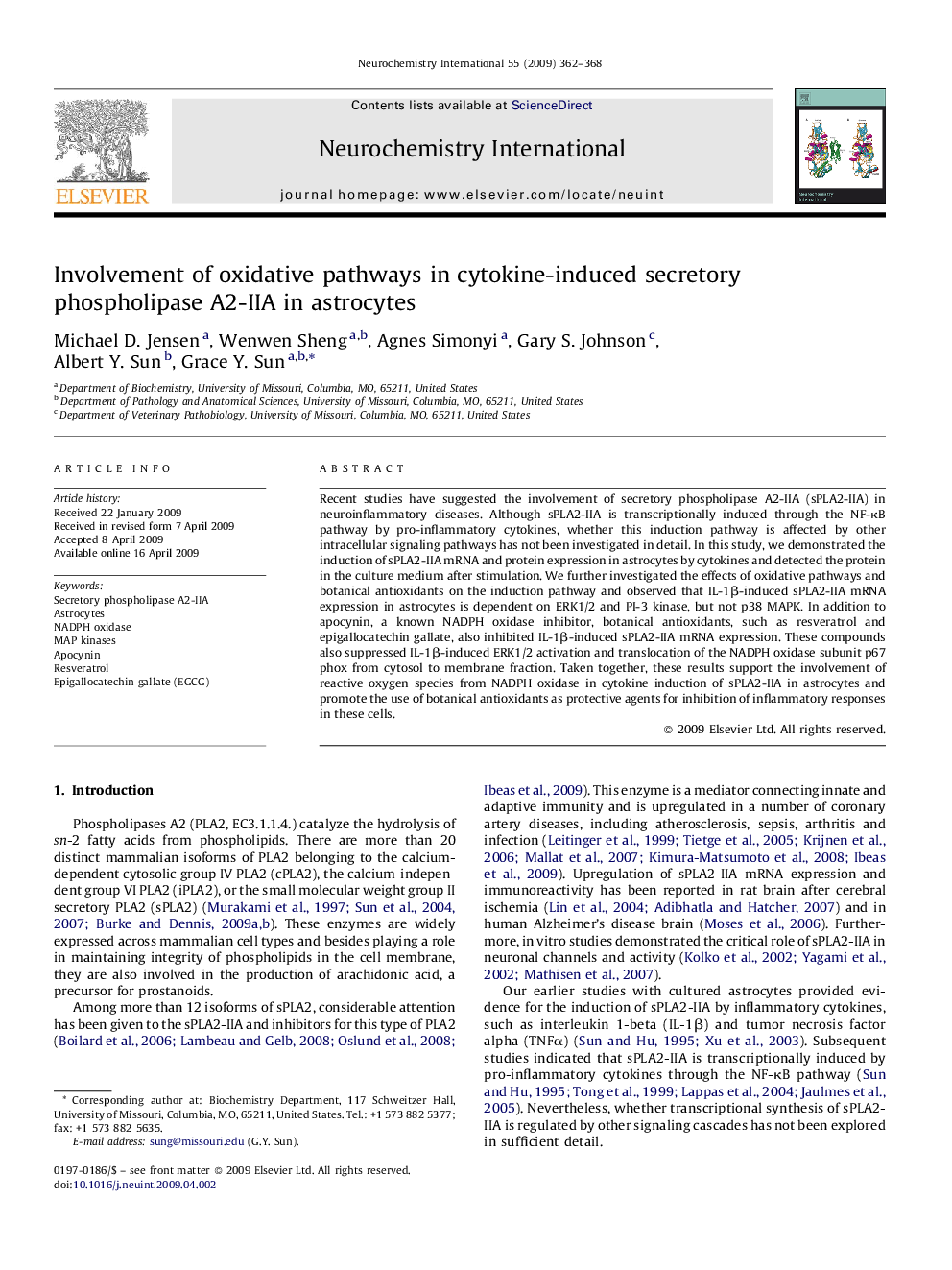| Article ID | Journal | Published Year | Pages | File Type |
|---|---|---|---|---|
| 2201654 | Neurochemistry International | 2009 | 7 Pages |
Recent studies have suggested the involvement of secretory phospholipase A2-IIA (sPLA2-IIA) in neuroinflammatory diseases. Although sPLA2-IIA is transcriptionally induced through the NF-κB pathway by pro-inflammatory cytokines, whether this induction pathway is affected by other intracellular signaling pathways has not been investigated in detail. In this study, we demonstrated the induction of sPLA2-IIA mRNA and protein expression in astrocytes by cytokines and detected the protein in the culture medium after stimulation. We further investigated the effects of oxidative pathways and botanical antioxidants on the induction pathway and observed that IL-1β-induced sPLA2-IIA mRNA expression in astrocytes is dependent on ERK1/2 and PI-3 kinase, but not p38 MAPK. In addition to apocynin, a known NADPH oxidase inhibitor, botanical antioxidants, such as resveratrol and epigallocatechin gallate, also inhibited IL-1β-induced sPLA2-IIA mRNA expression. These compounds also suppressed IL-1β-induced ERK1/2 activation and translocation of the NADPH oxidase subunit p67 phox from cytosol to membrane fraction. Taken together, these results support the involvement of reactive oxygen species from NADPH oxidase in cytokine induction of sPLA2-IIA in astrocytes and promote the use of botanical antioxidants as protective agents for inhibition of inflammatory responses in these cells.
